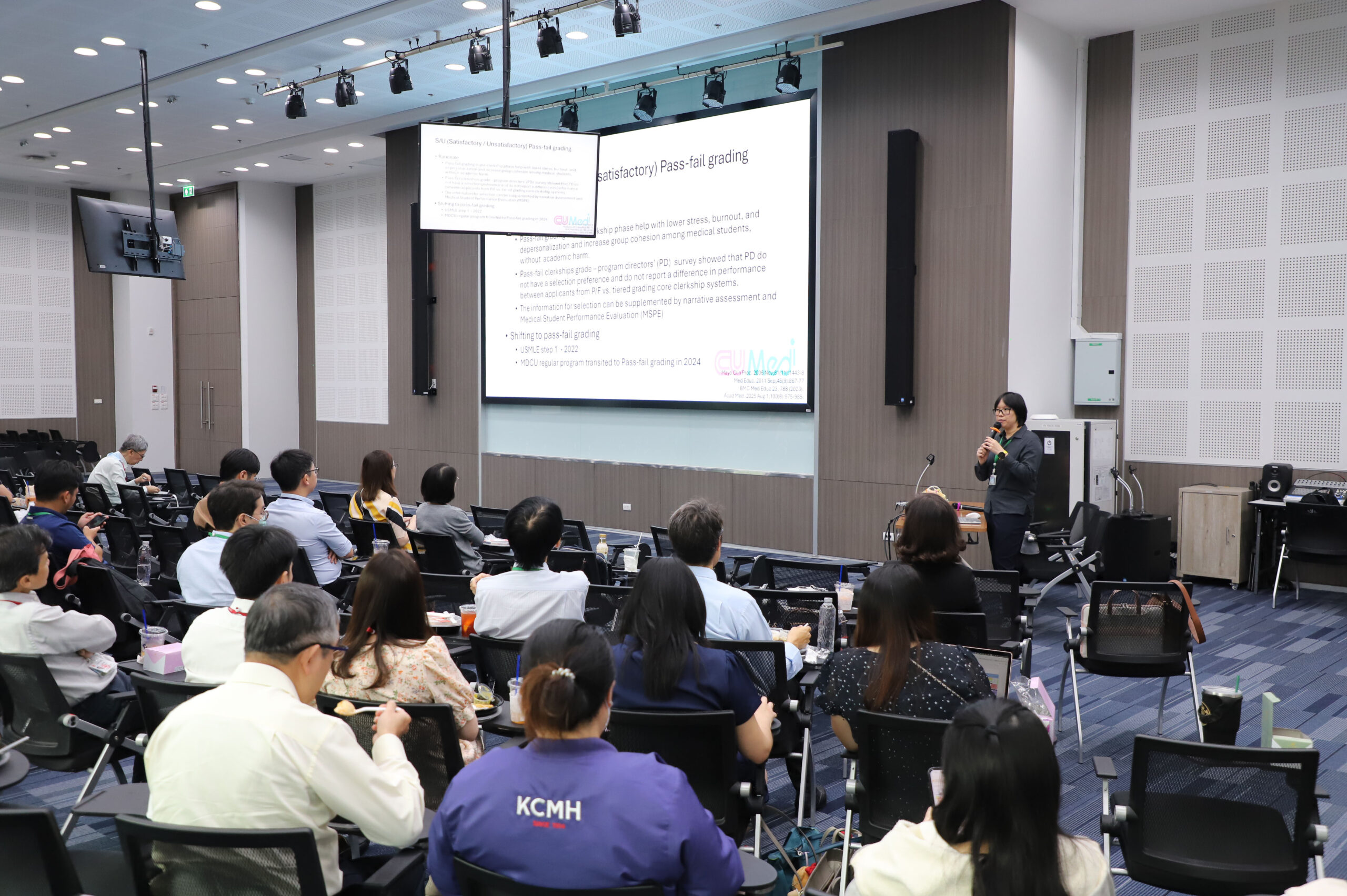The Faculty of Medicine, Chulalongkorn University organized a workshop entitled “CU-MEDi: Moving Forward Together” on October 2, 2020 at Conference Room 1201, Bhumisiri Mangkhalanusorn Building, Chulalongkorn Memorial Hospital.
With more than 100 medical lecturers participating, the workshop was aimed at sharing ideas to improve the teaching and learning management of CU-MEDi international medical program.
คณะแพทยศาสตร์ จุฬาลงกรณ์มหาวิทยาลัย ได้จัดการประชุมเชิงปฏิบัติการหัวข้อ CU-MEDi: Moving Forward Together เมื่อวันที่ 2 ตุลาคม 2563 ณ ห้องประชุม 1201 อาคารภูมิสิริมังคลานุสรณ์ โรงพยาบาลจุฬาลงกรณ์ สภากาชาดไทย
การประชุมเชิงปฏิบัติการครั้งนี้มีวัตถุประสงค์เพื่อให้ผู้สอนร่วมแบ่งปันข้อคิดเห็นในการพัฒนาการจัดการเรียนการสอนของหลักสูตรแพทยศาสตรบัณฑิต (หลักสูตรนานาชาติ) หรือ CU-MEDi โดยกิจกรรมนี้มีอาจารย์แพทย์เข้าร่วมกว่า 100 คน



